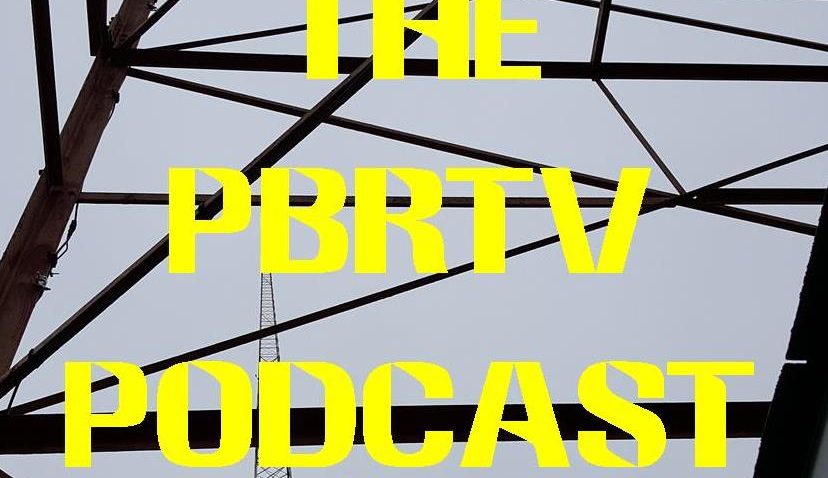Just the Fatimas, ma’am
December 24, 2007Manufactured by Liggett & Myers (better known for its eponymous “L&M” cigarettes), Fatima was advertised as an exotic blend of Turkish tobacco, but it had developed a stodgy image, and L&M soon began using Dragnet to promote its better-selling Chesterfield cigarettes instead.
. . .
Today, “Dragnet” seems quaint and stilted, but in the early 1950s, it was like nothing else on TV or radio. It was a far cry from shows like “Gangbusters,” in which verisimilitude took a back seat to drama, or detective shows like “Richard Diamond,” in which the cops were oafish foils for wisecracking private eyes.
Webb, the radio and B-movie actor who created “Dragnet,” demanded a level of realism in the series that had rarely been attempted before in American broadcasting. If he needed the sound of a police car accelerating, he recorded real Los Angeles patrol cars racing past. If police radio traffic played an important role in a story, Webb used real Los Angeles police call signs and procedures.
As the disclaimers before each episode announced, stories on “Dragnet” were, in fact, pulled from police files, and real names of police officers were used in the scripts (with the exception of Webb’s “Sgt. Joe Friday” and his various partners). Only the victims’ names were changed “to protect the innocent.”
. . .
“Big Little Jesus” was actually the second “Dragnet” Christmas episode. “Dragnet” had previously presented the story “.22 Rifle For Christmas,” in which police investigated the disappearance of a small boy just before the holiday.
Written by James E. Moser, “.22 Rifle” still packs a powerful emotional wallop, even if the gun-control message delivered at the end seems a little heavy-handed. Indeed, when “.22 Rifle” first aired on Dec. 21, 1950, the National Rifle Association wrote a letter of protest to NBC.
Los Angeles Police Chief William Parker, however, issued his strongest possible praise for Webb and “Dragnet,” asking for “10 more shows illustrating the folly of giving rifles to children.”
. . .
Today’s aircheck is an original off-the-air recording of that 1950 episode of “Dragnet.”
Joe Friday’s partner is Sgt. Ben Romero, played by veteran actor Barton Yarborough, who was also heard for nearly 20 years in the legendary soap opera “One Man’s Family.”
Along with Webb, Yarborough made the shift to the television version of “Dragnet” in 1951, but died suddenly and tragically of a heart attack after filming only two episodes. He would be replaced by Barney Phillips, Herb Ellis, and finally Ben Alexander, who played “Officer Frank Smith” from 1953 until the TV series ended in 1959.
The radio edition of “Dragnet” continued over NBC until 1957, sharing scripts with the TV series, which was revived in 1967 with Webb and Harry Morgan (who later appeared as Col. Potter on “M*A*S*H”). (“Dragnet” has since been revived two more times, once in syndication as “The New Dragnet” and again on ABC a few years ago. The less said about those versions, the better.)
. . .
Many companies offer the original, black-and-white episodes of “Dragnet” on DVD, but unfortunately they often they use gray-market public-domain 16-mm films of dubious quality.
Perhaps the best selection of black-and-white “Dragnet” episodes, often with the commercials included, comes from Chatsworth, Calif., based Shokus Video.
Shokus, which has been preserving vintage TV of the 1940s and ’50s for more than a quarter-century, even offers a “Dragnet” holiday DVD featuring “.22 Rifle,” “Big Little Jesus,” and New Year’s and Thanksgiving-themed episodes.
(The 1960s “Dragnet” series, filmed in “living color” for NBC, remains under copyright, and has received an official DVD release from Universal Home Video.)
. . .
By the way, there are several great sources for stories about Webb (whose humorless portrayal of “Joe Friday” belied a subversive and razor-sharp wit). One is the website Badge 714 (named for the authentic LAPD shield Webb wore on “Dragnet”). Others are the books My Name’s Friday by Michael Hayde and the authorized biography of Jack Webb, Just the Facts, Ma’am, written by Daniel Moyer and Eugene Alvarez.
. . .
Now, ladies and gentlemen, the story you are about to hear is true, much as it would have been heard more than a half-century ago over KDKA (1020) in Pittsburgh and fellow NBC affiliates WERC (1230) in Erie, WJAC (1400) in Johnstown and WTAM (1100) in Cleveland ….
(NBC Radio, Dec. 21, 1950)
Fifty-four years ago today, NBC’s “Dragnet” became the first regularly-scheduled TV series to have a regular, nationwide sponsor when Fatima Cigarettes signed on.
Tonight’s Christmas-themed episode, “The Big Little Jesus,” followed fictional Los Angeles police officers Sgt. Joe Friday and Detective Frank Smith as they searched for a statue of the baby Jesus that had been stolen from a church manger scene.
 Unfortunately, local residents would have to stay up until 11:30 p.m. to see it. According to local newspaper listings, both Pittsburgh’s WDTV (3) and Johnstown’s WJAC-TV (then on channel 13) preempted the 9 p.m. network feed to carry other shows.
Unfortunately, local residents would have to stay up until 11:30 p.m. to see it. According to local newspaper listings, both Pittsburgh’s WDTV (3) and Johnstown’s WJAC-TV (then on channel 13) preempted the 9 p.m. network feed to carry other shows.
(Since both WDTV and WJAC were the only VHF TV outlets in their respective markets, they filled their schedules with a mix of programs from DuMont, NBC and CBS. It was another year before Wheeling and Steubenville got their NBC television affiliate, WTRF-TV.)
Fatima (pronounced “Fah-tee-mah”) had been sponsoring the radio version of the Jack Webb drama almost from its inception in 1949. (The TV version of “Dragnet” had begun airing Dec. 16, 1951.)
But Fatima’s decision to underwrite the video version, too, was a clear sign that the audience (and advertisers’ dollars) was shifting decisively to television.

 “.22 Rifle For Christmas”
“.22 Rifle For Christmas”